Part 6 – Interpreting Luke and the Progressive Movement
by Dan Severson
Today’s topic examines how Luke in particular, and Christianity in general influenced what is commonly referred to as progressivism, which includes abolitionism. We begin with Luke 1:51-53. This is Mary’s song of praise after she is told she will be the mother of the Messiah. If we were to read this from a literal point of view, Mary is saying that God is going to overturn the way things currently exist in the social order. The powerful and rich are going to lose their advantages and the underprivileged are going to be lifted up. Since ancient time, many Christians have seen such problems as hunger, tyranny, wide gaps between rich and poor, and the abuse of power by dictators as evidence that we live in a fallen world. We see this concern not only in Luke, but also in Moses and the prophets. All of them believed that God desired a just social order and wise leadership that did not just protect the special interests of the powerful.
This is also expressed in Luke 6:20-26. This passage is Luke’s version of what is called “The Sermon on the Mount” in Matthew. However, Luke has a somewhat different version. First, he places Jesus on a level place rather than on a mountain. Matthew wants to portray Jesus as the new Moses. Since Moses received the law while on top of Mount Sinai, Jesus interprets the law from the top of a mountain. Luke portrays Jesus as a person who identifies with the common people, many of whom were very poor, and none of whom had any power. For this reason, Jesus speaks to them on their level. Moreover, Luke adds a section of woes to the blessings. While some people are blessed with a future in the kingdom of God where there will be no more sin and suffering, others will be excluded because they have abused their power and exploited their privilege. Jesus is clearly saying that a divine reversal of the social order will take place through the rule of God. In God’s kingdom, which is not wholly future but which begins when people live by faith in the death and resurrection of Christ, the causes of suffering, poverty, hunger, and the abuse of power will be dine away with. This will not come to completion until the end of time. However, those who believe in Jesus now will live their lives by resisting the temptations of wealth and power, and work for positive change in what remains a fallen world.
Over time, this led to the idea that it is the responsibility of the church to be engaged with the world in such a way as to bring about positive change. For Jesus, Christians are not people who are simply waiting to escape this fallen world and go to heaven. They are pilgrims on a journey that involves working for justice, peace, and a society that reflects God’s care for all people. Historically, this idea is embodied in the notion of progressivism. Christians will be advocates for the suffering victims of sin, and work for the alleviation of the conditions that cause hunger, suffering, injustice, and violence.
The idea that we are pilgrims bound for the kingdom of God has taken on many forms. In the Middle Ages, people such as Saint Francis took a vow of poverty, cared for all of God’s creatures, and embraced even lepers so that they felt loved and not excluded. Luther opened his doors to beggars and ministered to victims of the many plagues that spread across Europe. The pilgrims on the Mayflower sought to create a place where God’s presence could be seen in the way the community lived. William Penn wanted to create a place where all the rejected people and religious sects in Europe would be welcome. The abolitionist movement began with the Quakers and spread, particularly in formerly Puritan New England. It was the belief of many Christian churches that slavery was a violation of the biblical notion that people were created in the image of God. In the late 19th century the Social Gospel movement arose in the United States. It was believed that workers in the new industrial economy were being exploited by their capitalist employers, and that Christian life included working for social change to improve the lives of the poor. As a Christian reformer, Dr. Martin Luther King Jr. led in the same tradition as former Christian reformers, who saw themselves as doing God’s work for a more just society.
While working for positive social change is included in the Christian life, nevertheless, we still await final redemption by the grace of God.


